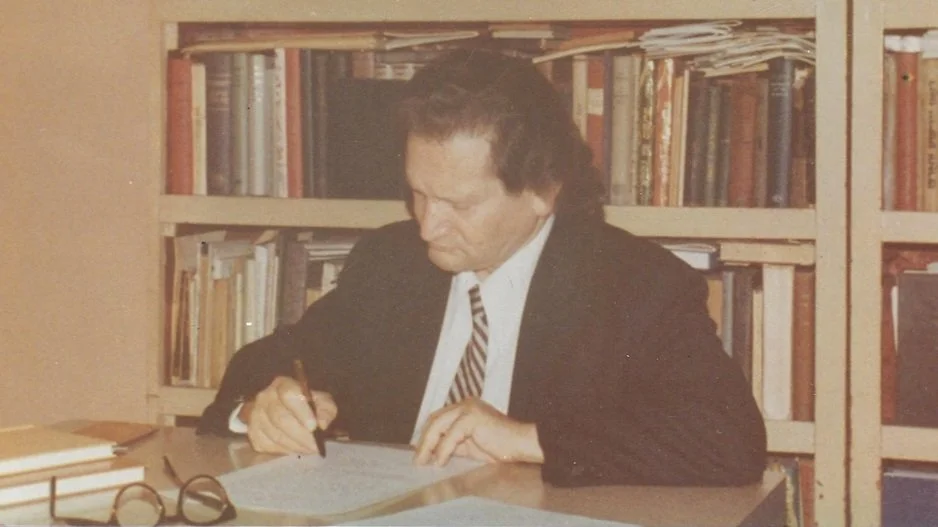
Pre-War Poems
Ghetto Works Discovered (Pre-Holocaust Works)
The subjects of the poetry range from ghetto landscapes, desperation, consolation, hunger, injustice, the Jewish people being eternal, nature especially trees, tuberculosis, and even love.
There are 40 poems in the collection, the shortest is only 6 lines and the longest is 42 lines.
The earliest dated poem was written in July 1940 (See below).
The poem with the last date is December 17, 1943.
“The Ghetto” Poem
Description of the Ghetto in the poem “Di Geto”:
It is one of the few poems where Bryks describes the ghetto physically. The ghetto area was surrounded by barbed wire fencing in the inner circle, then wooden boards and guards with rifles in a second circle, then in the third exterior circle were folksdeutsche German sentry boxes placed there by the Nazis to stand guard.
The poem describes the atmosphere of the ghetto, that all is grey; whether it be day or night, it is constantly dismal.
One may assume that this poem was written after the initial closing of the ghetto on April 30, 1940, an initial impact of the isolation, double circle of wire and armed guards. Bryks expresses the shock and disbelief of being confined in a ghetto in the very city which he claims Jews helped build.
The Yiddish text is followed by Bella’s translation into English. The original manuscript can then be seen.
Desperation - the poem “Lodzher Geto”
The earliest dated poem in the collection is titled “Lodzher Geto”.
It is comprised of 16 lines and on the bottom left of the text, Bryks added “7 1940 Lodz Geto”.
This poem was written only three months after the ghetto had been sealed. In this poem, we find great despair.
The residents of the Lodz ghetto were isolated, cut off from the city whereas the residents of the Vilna ghetto and the Warsaw ghetto were able to go out of the ghetto to work and return. Bryks describes the shootings and the daily violence that took place and the starvation.
Hope – the poem “Nisht Fartsveyflen Zayn”
Bryks states that this is the first poem he wrote in the Lodz Ghetto in 1940.
It is his most famous poem which has been translated into Hebrew, English and Polish: “S’iz nor a durkhveyndiker vint, nisht fartsveyflen mayn kind” (“It is but a passing wind, do not despair, my child”).
It is a song of hope.
All belongings were taken from the deportees when they arrived by train to the gates of Auschwitz. This included the third version of this poem. Bryks reconstructed the poem from memory.
This poem was very important to Bryks. Despite feelings of desperation and abandonment, Bryks consoled his people with hope, comforting them that this too will pass. The American composer William Gunther wrote music to the lyrics of this poem.
Prose - Shop Window
Of the 31 narratives, there are descriptions of the struggle to find food and wood, hunger, ration coupons, the group of writers, bakers, potatoes. Some pages are faded and illegible.
Bryks mentions a book title that he was apparently planning to write but after the war, no such manuscript in the Bryks archive in the YIVO Institute was found nor did he ever publish a book with this title.
The longest narrative is 19 pages.
In this story, Bryks writes about the rations and struggle for food. For 1 Mark, it was possible to buy a quarter of a kilogram (250 grams) of potatoes.
One could only dream of seeing an onion in the ghetto.
When a shipment of onions did come into the ghetto once, Bryks writes that first it was distributed to the policemen and the privileged of the ghetto, then offered for sale to the street.
Here too we see the “Classes” Bryks mentioned in his post-war works.
